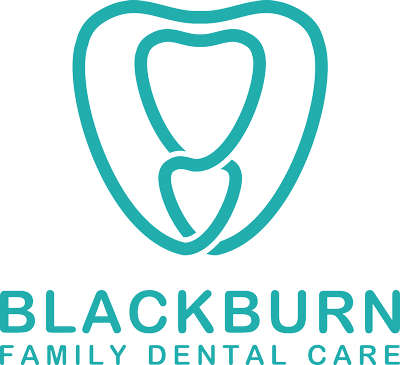Oral hygiene is a tricky topic that is not spoken about enough given its importance. Being one of the very first things noticed in an individual and considered to impact a first impression formed, your smile remains an essential feature to your self-presentation. An individual with an attractive smile is deemed to be associated with more positive qualities and a higher likelihood of success. There are some simple habits you can form to improve your overall oral hygiene and enhance your smile. However, it is important to always check-in with professionals who specialise in general and cosmetic dentistry on the state of your oral health.
Here are 8 tips to help you build and maintain a beautiful smile.
1. Bi-annual dental check-ups
As advised by the Australian Dental Association (ADA), a bi-annual check-up with a dentist plays an essential role in keeping the teeth and gums healthy. Prevention is truly better than cure in this case where the early detection of signs of cavity or gum disease could be tackled sooner. Most patients remain concerned with the price tag associated with these visits. However, by giving your dental team a chance to examine your oral health, you would be able to defer the hefty bill of other treatment options considered to be more expensive such as root canals or crowns. Many health insurances with extras such as dental cover allow you to have these appointments with no out-of-pocket costs.
However, if expenses continue to be a focal concern of yours, do note that the fees for those without health insurance are quite reasonable and affordable.
2. Floss first or Brush first?
It’s a common misconception that that flossing should follow brushing. Flossing first disrupts the biofilm (surface bacteria), food debris and gross plaque between the teeth. Brushing with toothpaste after this allows for a higher concentration of fluoride to be in contact with the cleaned tooth structure interproximally (area between teeth). The areas between teeth are commonly where tooth decay occurs, and so it’s important that fluoride strengthens these surfaces. Fluoride in these areas is particularly useful as it strengthens the enamel and dentine.
3. Manual or Electric toothbrush
A common question asked is which one is more effective? In the right hands either one is equally effective as long as you are brushing the right areas. Plaque does accumulate in the nooks and fissures on the biting surface of the teeth as well as in the junction between the teeth and the gums. The angulation of the brush should be towards these areas that plaque accumulates. Although these days there are features in electric toothbrushes that can be quite helpful in brushing such as timers or pressure sensors. Timers can be useful especially for younger members of the family who tend to rush the brushing process. Pressure sensors are also a nice feature that could aid in reducing damages such as recession, where the gums detach from the root to expose it due to the heavy strokes. It’s important to always use a soft toothbrush as brushing is a daily routine and it doesn’t take much pressure to remove the plaque which starts off soft initially. When you find hard deposits, it often means the plaque has been left there for too long, it may be time to revisit the dentist for a hygiene appointment.
4. Replace missing teeth
As well as the obvious effect on aesthetics for those with teeth missing in the front, missing teeth in all areas pose a threat to the alignment of your teeth, as teeth tend to move into spaces. Not to mention, bone deterioration/resorption can cause a shift in facial structures. Restorative or prosthetic dentistry would be an ideal option with solutions such as dental bridges, implants or even dentures. Talk to your friendly dentist to discuss which option is right for you.
5. Softer food, harder food or does it matter?
Chewing on hard foods such as carrots and apples are actually essential for a growing patient. Anthropological journals show cavemen who were brought up with a hard fibrous diet such as roots, had developed jaws and many could fit a whole set of straight teeth in their jaws. With modern diets like baby food and processed food, it has been hypothesised that this may contribute to the pattern of underdeveloped jaws which do not have space for the teeth to erupt, resulting in crooked teeth.
Depending on the situation, your dentist may advise that sometimes a tooth that is compromised, may be weak, and to be careful with harder foods in some areas. With some people where they have other underlying issues such as grinding or clenching, their teeth are at risk of fracture. In these cases, it may be prudent to listen to the advice of the dentist in regard to not only what foods but ways to protect the teeth from further damage.
6. Sleep patterns
Did you know that snoring could impact the health of your teeth? Well, the same goes for teeth grinding. Although not individually diagnostic, these symptoms could be a short-term episode caused by a stressful event, or might be a long-term symptom potentially from an underlying sleep disorder which may result in various reported health issues. If you experience any of the mentioned behaviours, discuss this with your dental/health professional. They would be able to point you to the right direction.
7. Wear mouthguards for sports
Keeping your body healthy is crucial, and so is protecting your teeth during sports. If you participate in contact sports it’s a good idea to get yourself a custom-made mouthguard. A lot of boil and bite mouthguards from the chemist are good for the short term, but they may not offer the same protection of one that is specifically fitted for your teeth. You could even personalise the mouthguard with names, varying colours or even team combination colours. You might be surprised to learn that a lot of dental health insurances cover a large portion or in some cases 100 percent in the cost of a mouthguard!
8. Try not to brush your teeth immediately after a meal
Another common misconception lies in the fact that one should brush their teeth immediately following a meal to prevent pathogenic bacteria from accumulating and causing damage. Albeit being true, professionals advise against brushing within the first half an hour of eating. When we eat, sometimes foods are intrinsically acidic (common acidic foods are wines, citrus fruits etc). This causes the pH of your mouth to drop, weakening some of the surface minerals of the teeth. The tooth structure can then be worn away with aggravation caused by immediate brushing. It may be prudent to wait until your saliva balances out the pH in your mouth. Drinking water can also help to balance out the acidity levels.
Whether you are in need of general or cosmetic dentistry assistance, we at Blackburn Family Dental Care are here to help you achieve a healthy smile and overall oral health. Operating for more than 60 years, we provide services ranging from teeth straightening, root canal treatment and crown, implants, bridges and more for both the younger and older generation. Our reputable credentials, affordability and wide range of private health coverages have established us as one of the preferred dental practices in Melbourne’s Eastern suburbs. Get in touch with us for your smile makeover today!

